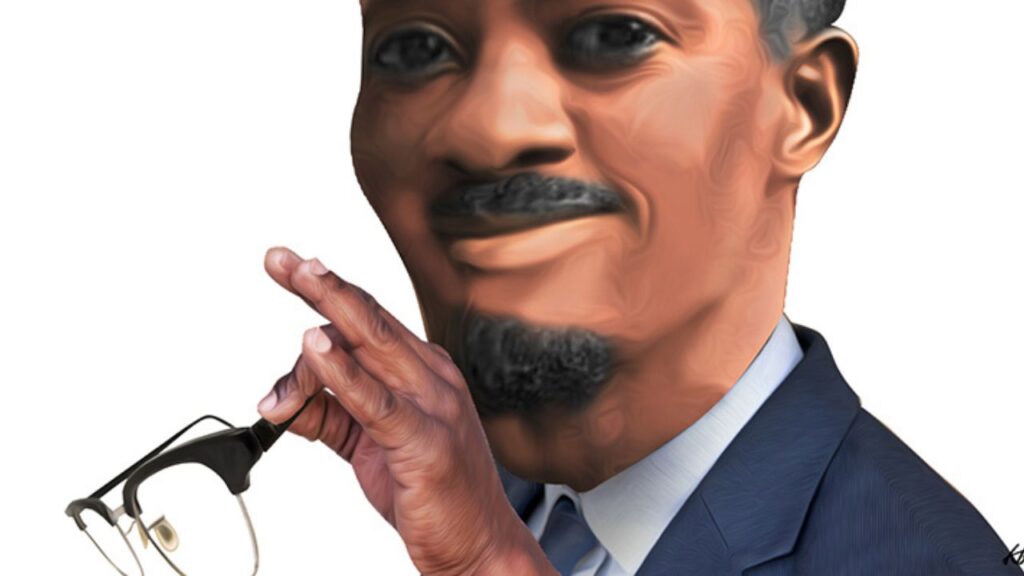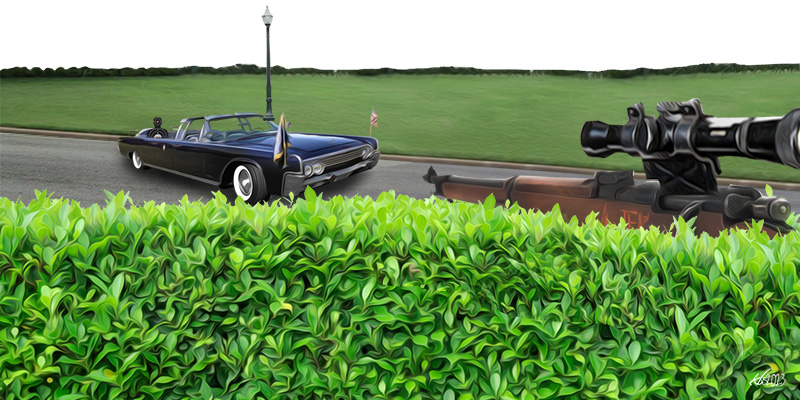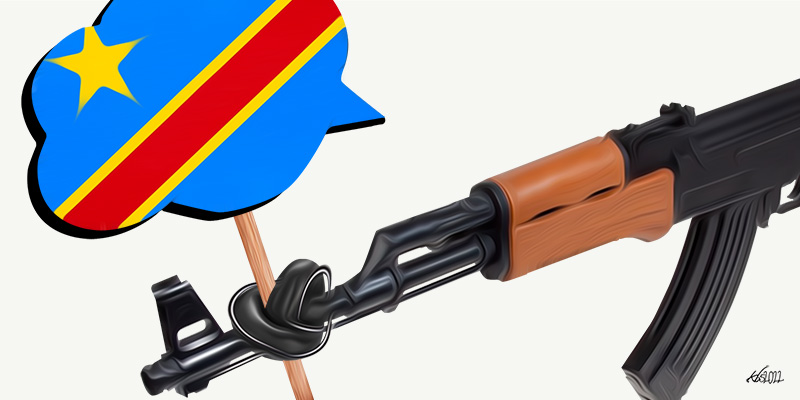The immigration official at Harare’s Robert Mugabe International Airport looked up after examining my passport, his face expressionless.
“Why have you come to Zimbabwe?”
“To celebrate,” I replied.
“What will you be celebrating?”
“Zimbabwe’s liberation,” I said, holding my breath. Journalists without visas have not been welcome in Zimbabwe for most of Robert Mugabe’s autocratic reign.
I need not have worried.
Joined by his colleagues, he burst into laughter, stamped my passport, and waved me through.
At one level at least, Zimbabwe has changed for the better. Despair has been replaced by hope. Views are expressed freely and openly. Optimism hangs in the air, albeit tempered by caution. Nonetheless, the optimism is tangible – almost as tangible as the musty smell of the parched earth as it soaks up the first of the country’s summer rains.
But less than a month since the country’s generals orchestrated the removal of the ageing dictator without the bloodshed and looting associated with coups the world over, concerns and doubts are creeping in.
Will the wave of goodwill be squandered by the new regime? Will the optimism turn to cynicism and plans for a fresh start become no more than an illusion? Are we seeing, not the emergence of democracy, but the modernisation of a one-party state, the overdue infusion of life into a sclerotic regime led by a despotic old man, increasingly under the influence of an ambitious wife?
At one level at least, Zimbabwe has changed for the better. Despair has been replaced by hope.
Or is the change in mood in itself an assurance that the process of reform will get underway? Is the change in mood of sufficient intensity to prevent back-sliding?
On a previous visit to Zimbabwe, the land that nurtured me until I was twenty, and on which I have reported for nearly 40 years, my time had been soured by tension and fear generated by authoritarian regimes, whether white or black.
Would the mood of a post-Mugabe Zimbabwe be sustained, and would it be radically different?
I set off from London to see and to feel for myself.
***
Together with a photographer colleague, we spent the next week travelling across the country, talking to anyone who was prepared to talk to us: mission priests, teachers, roadside vendors, taxi drivers, civil rights lawyers, political activists, hotel stewards, opposition leaders, students and university lecturers.
The journey would take us to the eastern border town of Mutare, picturesque but run-down, nestling in the green hills of the Nyanga mountain range, and on to Catholic mission stations a three-hour drive north of the city, on the border with Mozambique.
I had first visited these missions in 1975, at the peak of Rhodesia’s guerrilla war. Four years later, Rhodesia became independent Zimbabwe. The conflict ended at the Lancaster House conference in London, but not before hundreds of children from the mission schools had sacrificed their careers and crossed the border to join Robert Mugabe’s guerrilla army.
Back to Harare, and on to the town of Chinoyi, north of the capital, driving through the countryside that had been home to many of the 4,500 white farmers forcibly evicted from their land by government-backed mobs.
Finally, a 40-minute flight to the southern city of Bulawayo, stronghold of the opposition Zapu party and capital of the province of Matabeleland, scene of one of the darkest events in the country’s history – the massacre, known as gukurundi, of some 20,000 civilians.
In different ways, the journeys touched on many of the issues confronting the new president Emmerson Mnangagwa.
Will the government agree to a commission of inquiry into the massacre?
How would it handle compensation for white farmers?
Would the composition of the new cabinet reflect the new Zimbabwe?
And would the 75-year old president, nicknamed the Crocodile, who had loyally served Robert Mugabe for the last 40 years, repent his past and turn over a new leaf?
Not only was the land reform conducted violently, many of the grabbed farms were allocated to cronies of Mugabe, including the army generals who would later remove him.
In his inauguration address, no one was surprised when Mr. Mnangagwa ruled out a return of land to the farmers:
“Dispossession of our ancestral land was the fundamental reason for waging the liberation struggle. It would be a betrayal of the brave men and women who sacrificed their lives…if we reverse the gains we have made in reclaiming our land.”
He failed, however, to address the central concern of commentators who sympathised with the principle of land reform, but who were critical of its implementation. Not only was the land reform conducted violently, many of the grabbed farms were allocated to cronies of Mugabe, including the army generals who would later remove him.
Mr. Mnangagwa did make one concession:
“My government is committed to compensating the farmers from whom the land was taken.”
But the farmers will not be holding their breath.
“The government has not the funds to cover even modest compensation.”
Of far greater concern is the tragedy of Matabeleland. We spoke to David Coltart, a Bulawayo-based human rights lawyer, and a former senator widely admired for his work as education minister in the government of national unity.
He has no doubt about Mr. Mnangagwa’s complicity in the slaughter of civilians in the early 1980s. At the time, he was head of the country’s Central Intelligence Organisation, and had access to the membership records of Zapu. The impact of the information was devastating. Party officials were singled out, interrogated and summarily executed, effectively destroying Zapu, says Coltart, who has detailed this infamous campaign in his book, The Struggle Continues: 50 years of tyranny in Zimbabwe.
The only way this boil can be lanced, say survivors, is for Mr. Mnangagwa to admit his role in the slaughter and to apologise. He must also agree to a public inquiry, and to providing compensation in the form of schools, clinics, boreholes and other community services.
A senior Zapu official was doubtful that such steps would ever be taken. The alternative, he warned, was an embittered, resentful people who account for one in five of Zimbabwe’s population.
One obstacle to such an inquiry is the loyalty of the new regime to the former president, who, after all, bears overall responsibility for the slaughter – just as he does for the state of the country today.
Far from condemning the man, his successor has gone out of his way to praise him:
“He remains a father, mentor, comrade in arms and my leader…History will grant him his proper place and accord him his deserved stature as one of the founders and leaders of our nation…I have no doubt that over time we will appreciate the solid foundation laid by my predecessor.”
Needless to say, this view is not shared by most Zimbabweans. Eddie Cross, a Bulawayo member of parliament, has calculated the cost of Robert Mugabe’s plundering of state resources. Cross reckons that Mugabe embezzled around $80 billion during his 37 years in office, which culminated in the theft of $21 billion in diamonds from the alluvial deposits in Marange – equal to 8 times Zimbabwe’s national debt.
Cross reckons that Mugabe embezzled around $80 billion during his 37 years in office, which culminated in the theft of $21 billion in diamonds from the alluvial deposits in Marange – equal to 8 times Zimbabwe’s national debt.
The human cost of Mugabe’s reign is harder to calculate, but Cross blames him for the premature deaths of 3 million Zimbabweans as life expectancy crashed from over 60 years in 1980 to 35 years during his reign. And added to this grim toll are at least a million Zimbabweans who fled the country in search of work or to avoid repression.
***
We were in Bulawayo when the names of the new cabinet members were announced, which was seen as the first sign of the president’s intentions.
Hopes that it would include new blood and fresh talent were dashed. With an average age of the mid-fifties, only one woman, and four ministers with army backgrounds, the cabinet appeared business as usual.
It should have come as no surprise. An editorial in the state-controlled daily newspaper, the Herald, had earlier given advocates of a cabinet of talent short shrift.
“Zanu-PF has a clear mandate,” read the headline.
“Why have a government of national unity…when Zanu-PF has a clear mandate?” the paper asked.
“The challenge is to reconcile the interests of the revolution with those of the people who went into the streets…those who have struggled for years to put Zanu-PF in the dustbin of history”.
The message was unmistakable: The ruling party has no intention of surrendering its grip on power.
“The honeymoon with Mnangagwa is over,” declared Cross after the announcement of the cabinet.
“He has made a major tactical error and both the country and the international community are going to adopt a wait and see attitude, which is really what he does not need. He has been unable to throw off the mantle of Zanu-PF and the military junta…Can he carry (the party) over the finish line just 8 months away in the form of an election?”
A more accurate metaphor, however, may be to see the relationship between Zimbabwe and the donors not as a short honeymoon, but as a shotgun marriage.
Neither the government of Zimbabwe nor the international and bilateral donors are comfortable in the relationship now being forged. The former will resent the conditions attached to urgently needed financial support; the latter will surely feel uncomfortable with having to deal with such an insalubrious group of ministers.
Only China will have no qualms; well ahead of the field as it provided substantial emergency funding.
The outcome is uncertain.
Is a process of genuine reform under way or are we witnessing the salvaging of Zanu-PF, which is being rescued by Western donors from a crisis of its own making, yet which is unrepentant and arrogant and intolerant of dissent? The opposition in disarray and the press and social media are monitored.
In the meantime, Zimbabweans and donors alike are waiting for a concrete gesture from the president that allows them to believe that the crocodile can change his nature.
Zimbabwe has a culture of deference to authority and veneration of age. What else explains the full-page advertisements in the country’s newspapers extoling the virtues of their new leader, whose brutal past is well known, and who must surely share the responsibility for the sorry state of Zimbabwe today?
Many Zimbabweans express pride at the bloodless nature of the coup. Only in Zimbabwe, they say, could there have been such a peaceful transformation from dictatorship to a celebration that brought hundreds of thousands of joyful dancing citizens onto the streets, embracing soldiers as they celebrated.
But there are two sides to this coin.
Zimbabwe has a culture of deference to authority and veneration of age. What else explains the full-page advertisements in the country’s newspapers extoling the virtues of their new leader, whose brutal past is well known, and who must surely share the responsibility for the sorry state of Zimbabwe today?
“We pledge our unwavering support and absolute dedication…your wise counsel and visionary leadership … your astute quality,” read one especially obsequious endorsement. Not since the days of Ian Smith, the former prime minister who was hero-worshipped by white Rhodesians, has there been such a fawning welcome to the man in office.
Meanwhile, images and scenes from the journey recur like flashbacks:
workers painting road signs in the farming town of Rusape on a Sunday; grass growing in Mutare’s main street; the colonnaded, wood paneled, century-old Bulawayo Club; women selling mushrooms by the roadside in the Nyanga national park; the polite treatment at a roadblock north of Mutare; guti (mist) clearing as the sun rose over the resort of Troutbec.
But the most vivid and most memorable image is the one of the students at the mission where we spent a night. Confident youngsters, smartly turned out, free from the horror of war that had destroyed the lives of an earlier generation, expressing a determination to succeed in their chosen professions.
Today a cabal of old men run Zimbabwe. If they have the good sense not to cling to power, the country’s future is in safe hands.








